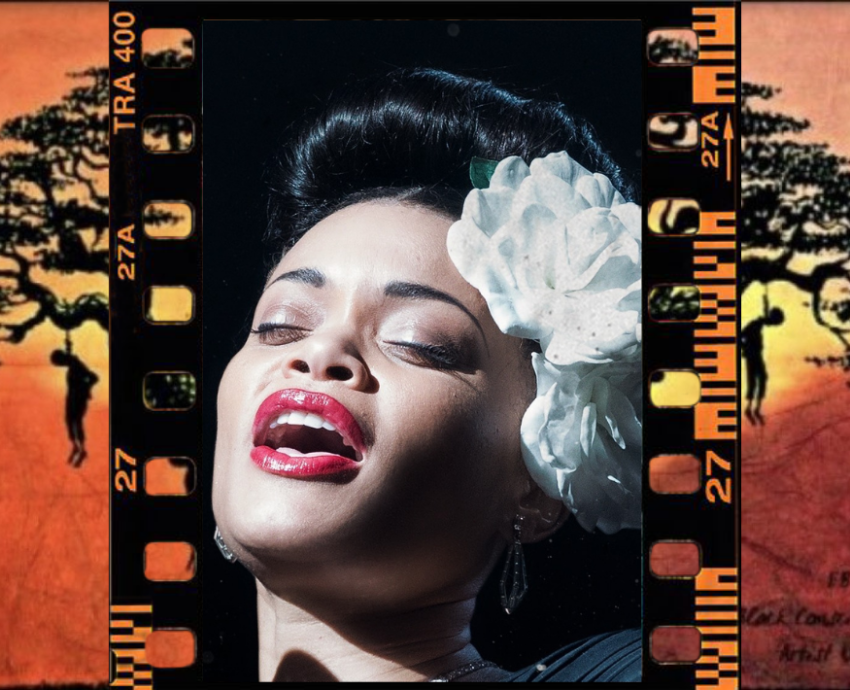
The United States vs Billie Holiday
Directed by Lee Daniels
Starring Andra Day, Trevante Rhodes, Natasha Lyonne, Garrett Hedlund
In cinemas now
Communist trade unionist, Abel Meeropol wrote a song in 1937 in response to a newspaper photograph of a ghastly lynching of two Black men in the United States South.
Billie Holiday, who was already an established jazz star, adopted the song, "Strange Fruit " and turned it into an anthem.
Holiday would sing it at the end of her set at Harlem's Cafe Society, the first racially integrated night club in the US, which attracted a left-wing crowd.
All the stage lights were extinguished, the waiters would stop serving drinks and the crowd would be hushed. A spotlight would suddenly illuminate only Holiday's face as she began singing.
The New York Post said of the song: "If the anger of the exploited ever mounts high enough in the South, it now has its 'Marseillaise'."
The United States vs Billie Holiday shows that it was not just progressives who paid attention.
FBI Director J Edgar Hoover took personal exception to the song and ordered his forces to do everything possible to destroy Holiday. It isn’t shown in the film, but he also unleashed the FBI on Meeropol.
Holiday was a heroin addict. As Gerald Horne has shown in his recent history, Jazz and Racism, heroin was deliberately used by the criminals infesting the US entertainment industry to enslave artists.
The FBI assigned a Black agent, Jimmy Fletcher to set up Holiday for arrest.
In the film, Fletcher is portrayed as a decent man beset by conflicting feelings about what he does to Holiday. In reality, he was a police narcotics agent who sold heroin to people, then arrested them for possession.
On screen there is a romantic affair between Holiday and Fletcher, for which there is scant historical evidence. If true, it could have been just one more of the exploitative relationships Holiday had with men starting from her rape at ten years of age and continuing throughout her life.
Much of what is seen in The United States vs Billie Holiday is either historically accurate or events that could have occurred. Its value is in its depiction of the extraordinary weight of racism in the US and Holiday’s courage in facing up to it.